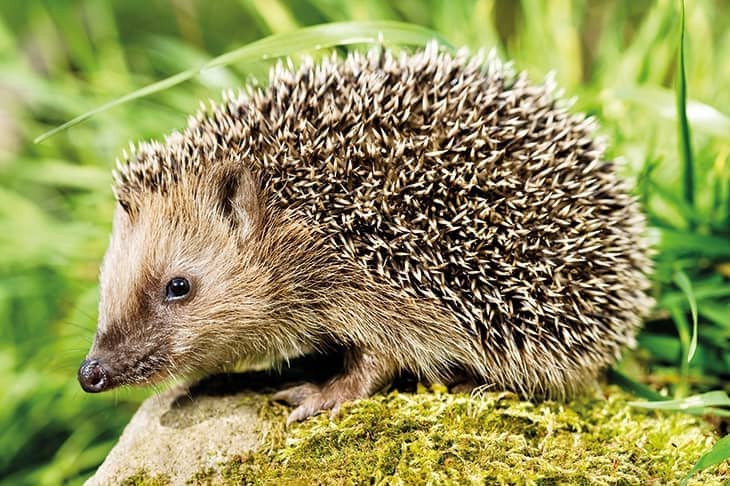No wild animal is closer to the hearts of the British than the hedgehog. In poll after poll, it has been voted our favourite mammal. This is hardly surprising. Hedgehogs naturally inspire affection. Mrs Tiggy-Winkle, the companionable washerwoman created by Beatrix Potter, is only the most celebrated of a whole host of them who trot and snuffle through our national imagination. They are familiar to us in a way that few other wild creatures are. They can be met in fields and gardens, in hedgerows and parks. To see one is to feel the tug of a fascination with the natural world as a whole. In the words of Hugh Warwick, the naturalist who serves hedgehogs as their great contemporary champion: ‘These are precious creatures to be treated with great respect.’
Over recent decades, however, we have not been treating them with great respect. An animal that was once ubiquitous seems on the brink of extinction. The most recent survey of hedgehog numbers in Britain, issued last month, was widely reported as good news. This was on the basis that populations in towns and cities seem to have stabilised, or perhaps even to be recovering. But beyond built-up areas hedgehog numbers continue to plummet. In certain parts of the country – East Anglia most notably – the population decline since 2000 has been 75 per cent. Since the second world war, Warwick estimates, it has been 90-95 per cent. Children are growing up who may never see a hedgehog in their entire lives.
It is not sentimentality to mourn this. Hedgehogs are precious in and of themselves; but they are also precious as bellwethers. A countryside unable to sustain hedgehogs is a countryside that is sick. It is no coincidence that the decline in their numbers should have begun during the second world war, when agriculture was expanded on an industrial scale. It is no coincidence either that this rate of decline should have accelerated since 2000. Hedgehogs cannot survive without the large numbers of invertebrates that are sustained by a healthy countryside. As insects decline, so inevitably do hedgehogs. Nor, when the average male likes to travel two to three kilometres a night, can their populations flourish if their habitats are sliced and diced by roads. Now that they are bounded in by gashes of tarmac, poisoned by insecticides and surrounded by equally hungry badgers, it is little wonder that hedgehogs face a struggle to survive.
It might seem a bitter paradox that the more their populations plummet, so the more we proclaim our love for them. Yet perhaps there is an opportunity here. ‘Nature,’ as Mark Cocker has put it, ‘is slipping from these islands; slowly, steadily, inexorably, field by field, dyke by dyke.’ The call to do something seems to most of us too abstract, too divorced from the fauna around us to serve as a summons to action. Who better, then, to serve as the public face of a campaign to restore our wildlife than hedgehogs? A statutory obligation on the government to restore their numbers would work to the good of many other species as well – including invertebrates. The prize for a political party prepared to stand up for Mrs Tiggy-Winkle would be a rich one.






Comments